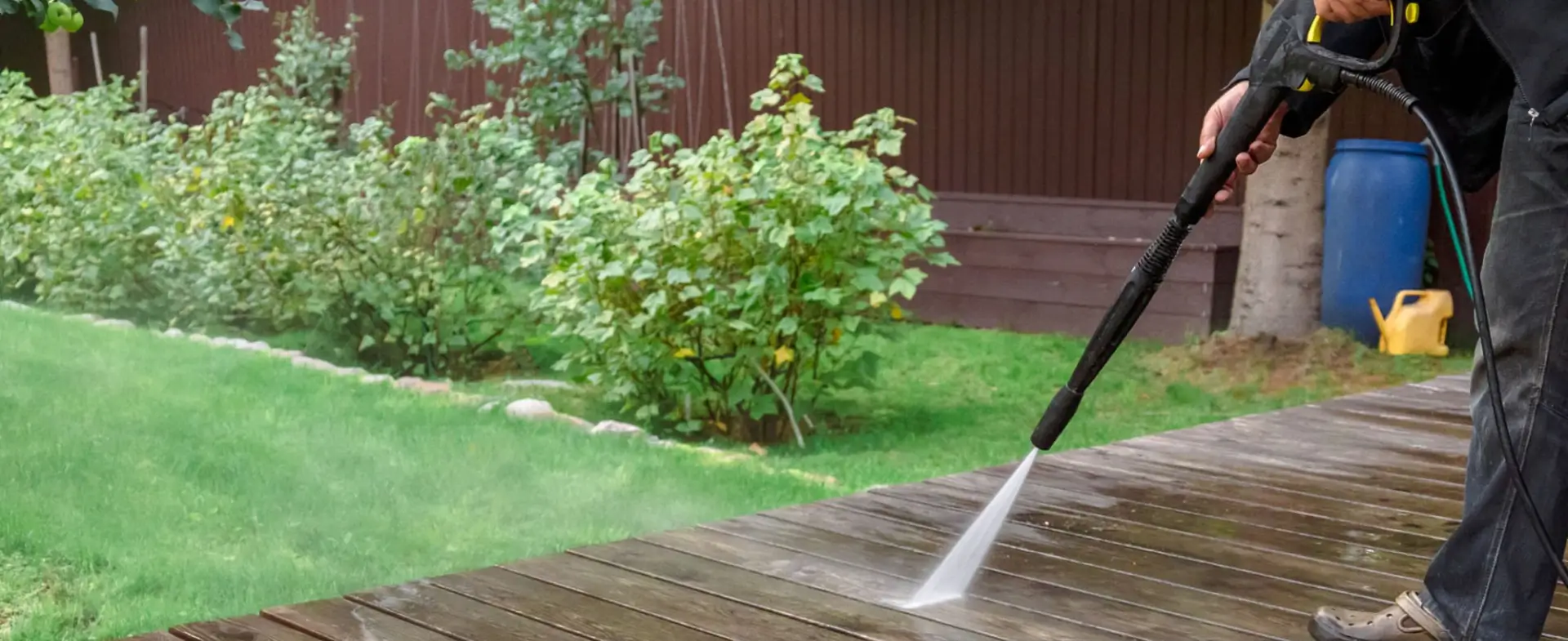Nov 27,2024
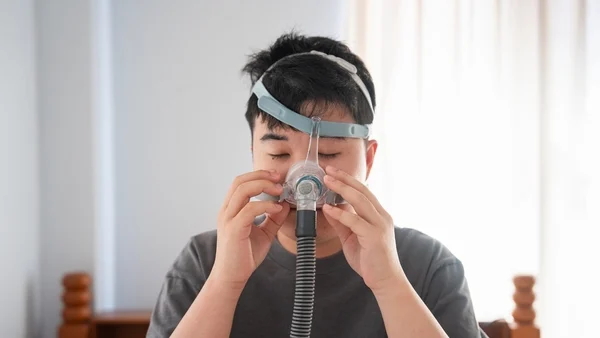
GP Máire Finn talks to Claire Byrne about the signs, symptoms and possible health impacts of sleep apnoea. Listen back above.
Many of us suffer from broken sleep without even noticing until a partner points it out, or daytime drowsiness becomes an issue. If you find you are waking up multiple times during the night, it could be due to a sleep-related breathing disorder called sleep apnoea.
The majority of sufferers don't know they have it, and it can have serious health consequences; according to Clare GP Dr Máire Finn speaking on Today with Claire Byrne:
"What's most remarkable about it is that most people aren't aware that they have it. It's estimated about 80% of people with sleep apnoea have not been diagnosed - and it has many, many repercussions."
Sleep apnoea causes your breathing to stop and restart while you are asleep. This happens when the muscles around the airways relax, preventing the flow of air. The brain recognises the lack of oxygen and causes you to wake up briefly; breathing restarts and you fall asleep again.
This can happen over and over and each time it happens, the sleeper suffers short bouts of oxygen deprivation.
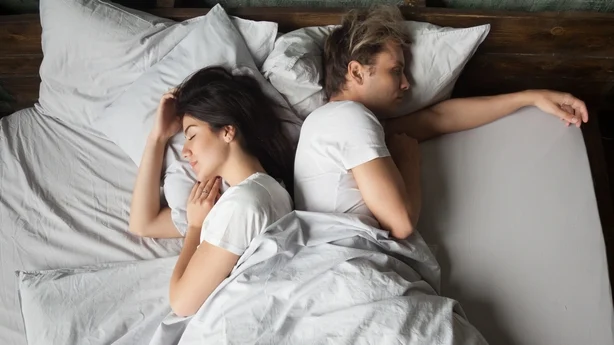
There are a number of risk factors for sleep apnoea, Dr Finn says:
"Being male is a risk factor; getting older is a risk factor because our tissues get a bit looser as we get older. Having a family history of it is a risk factor as well. Being overweight definitely is a major risk factor, so it should be addressed if at all possible."
There are other risk factors including using alcohol or sedatives. The shape of your mouth, jaw and throat can also contribute. For this reason, dentists can often spot the problem, and even help with suggestions for treatment in some cases, Dr Finn says.
Máire explains that there are two kinds of sleep apnoea; obstructive sleep apnoea, where the airways become contricted due to some of the factors already mentioned; and central sleep apnoea which is caused by irregularities in the brain’s breathing signals.
The obstructive kind is more common and easier to treat than the central kind, Dr Finn says.
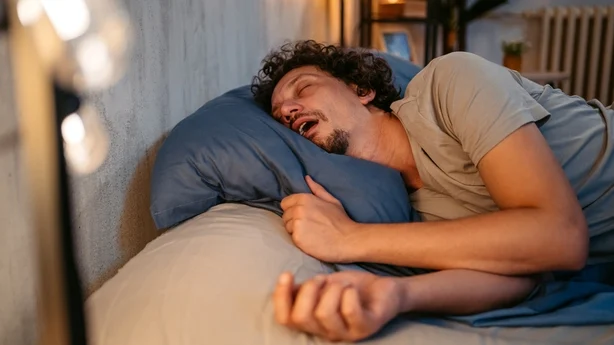
People who are woken up by their partner’s snoring can notice the sleeper breathing in an irregular way, or even gasping for breath. The sleeper themselves may be unaware of the problem, Dr Finn explains:
"They have these pauses that seem like they have stopped or even died, God forbid. They won’t; your body will make you breathe again, but it will frighten the person beside them. It’s actually something that you’re frequently not aware of."
Máire says that while snoring can cause conflict within relationships, apnoea can lead to the development of chronic illnesses and even be life-threatening. She lists some of the complications that can arise:
"Sleep Apnoea is associated with diabetes, cardiovascular disease, atrial fibrillation, high blood pressure; and also, which makes an awful lot of sense, driving accidents, time off work and poor mental health because of that excessive tiredness."
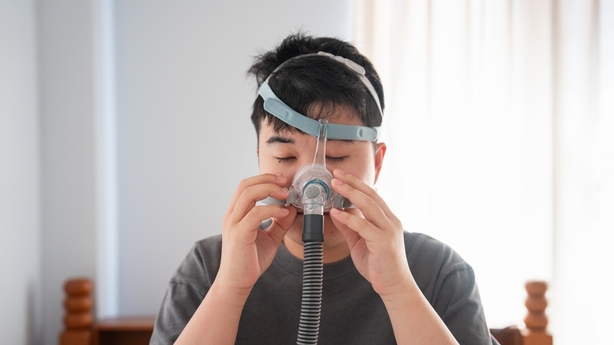
The use of a CPAP (Continuous Positive Airway Pressure) machine is often prescribed in cases of obstructive sleep apnoea. The machine comes with a mask which keeps the airways open during the night.
This is not a cure for sleep apnoea, Dr Finn says, but it can improve the quality of sleep and help to avoid some of the complications that can arise.
Dr Finn took questions from listeners on the show, many of whom are already users of CPAP machines and you can hear the discussion in the full interview above. Some callers said that they find the CPAP machines uncomfortable to use, and Máire says new technology is leading to refinements in the design of CPAP machines.
She says she has high hopes that they will become easier to use with time:
"I’d imagine in a few years, these things will be small little, really non-obtrusive devices; but right now they are a little bit difficult and at the moment what you should do is go back to your provider – whoever that was initially – and talk to them about are there any new developments, is there something I can do about it?"
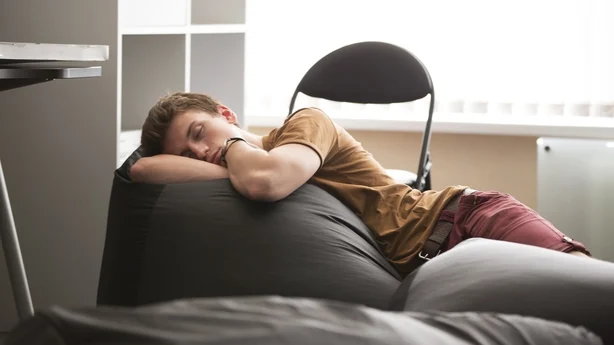
Dr Finn says we shouldn’t ignore daytime sleepiness, as it could be a sign of a bigger problem. In an answer to one listener’s query about her husband, Dr Finn underlines the importance of taking daytime drowsiness seriously.
"If he sits down to watch the news at lunchtime, is he actually going to fall asleep in front of the television? Simple things like that. Is he likely to get very drowsy when driving? These are all little signs, simple signs that we actually accept a little too much of, that can be signs of sleep apnoea."
Dr Finn explains that good quality sleep is essential to keeping us alive. She says it is vital for supporting a healthy body and mind:
"Sleep is actually such an important part of our lives and it’s about restoration, it’s about kind of pruning our neurons, it’s about sorting out all sorts of memories and things. That only happens in specific periods of sleep and it only happens if we stay asleep for the right amounts of time."
Dr Finn answers listener questions in the full interview which you can hear by tapping or clicking above.
For more information on sleep apnea, speak with your GP or visit HSE.ie
.svg)
